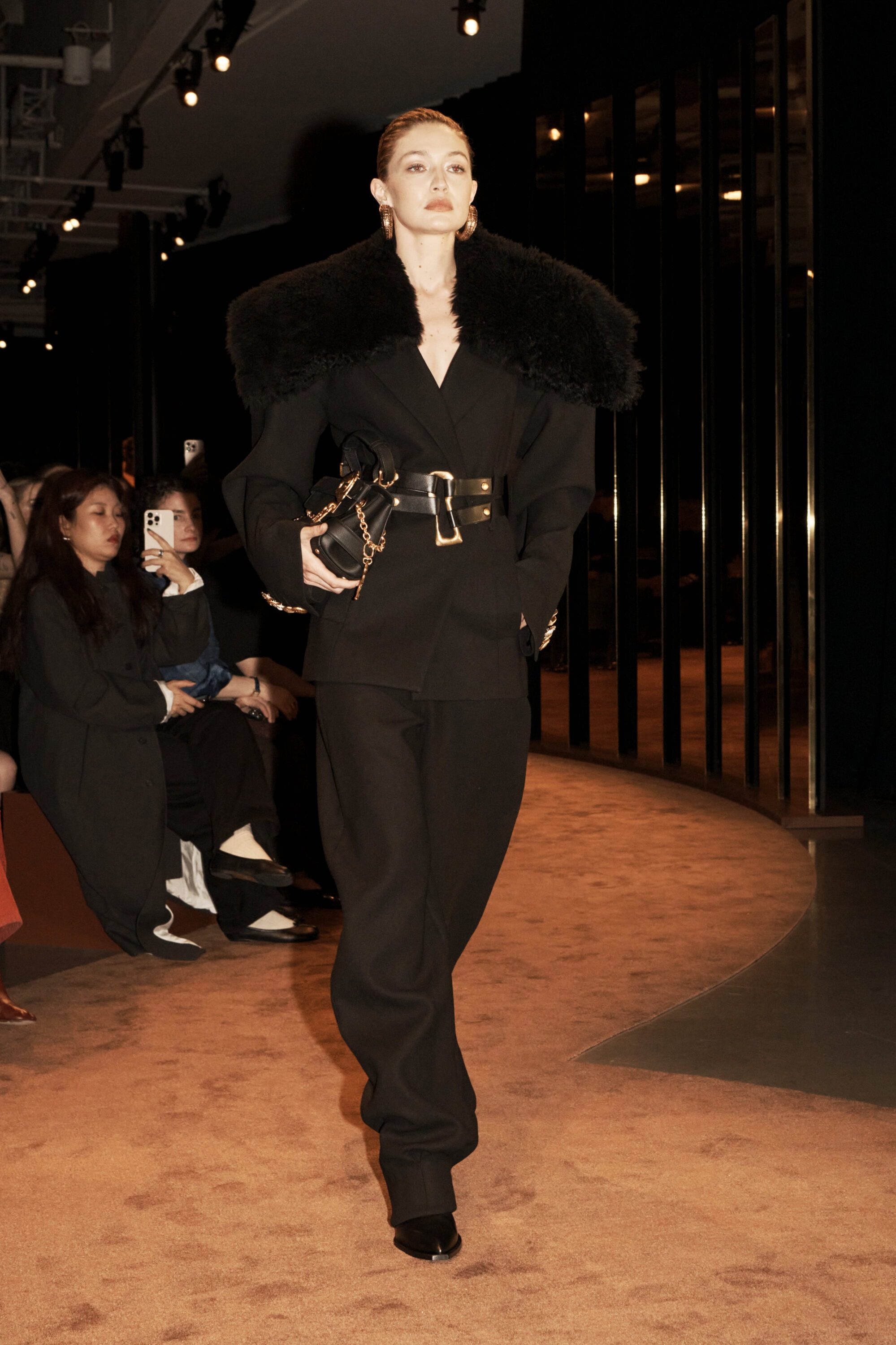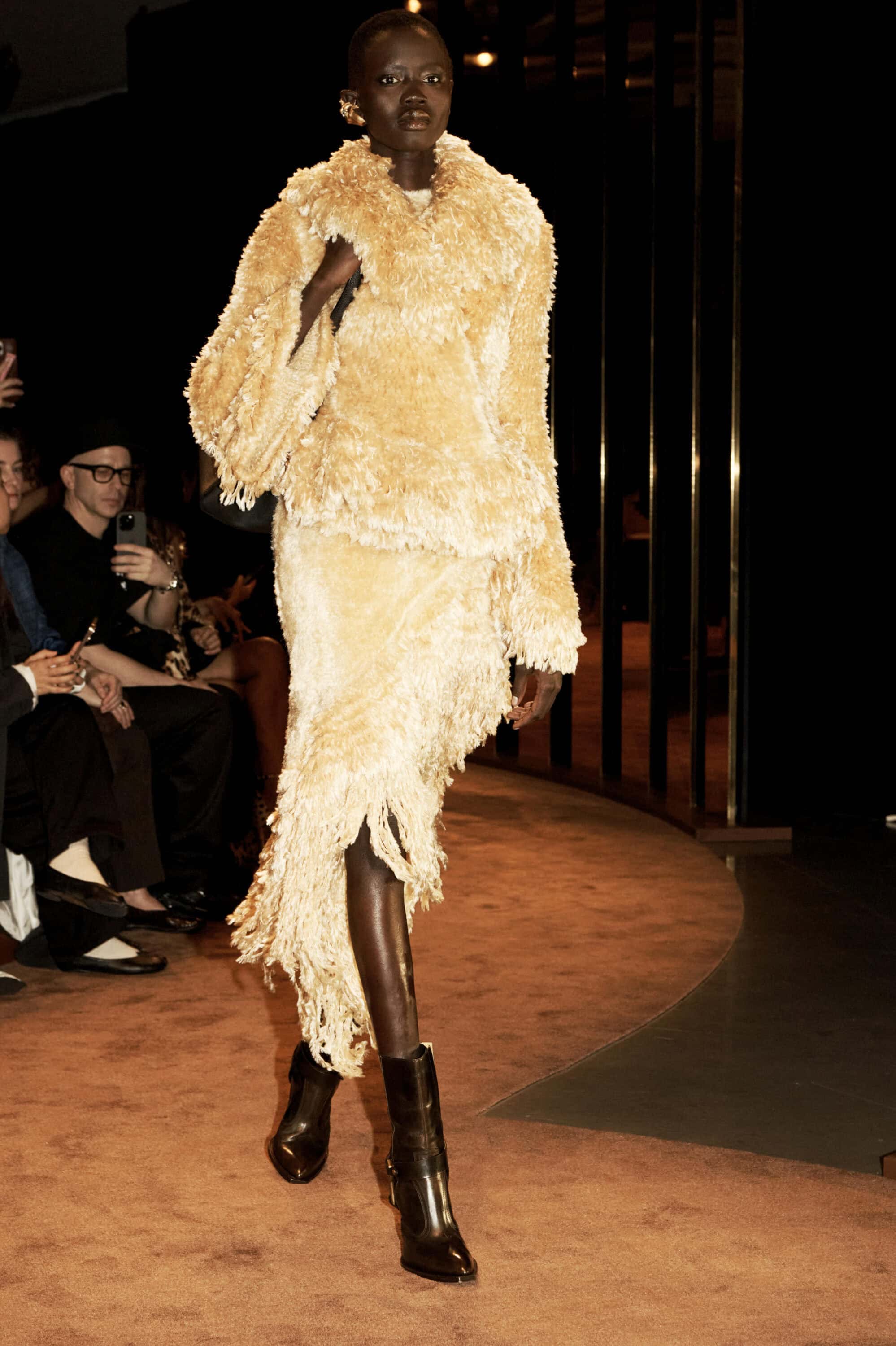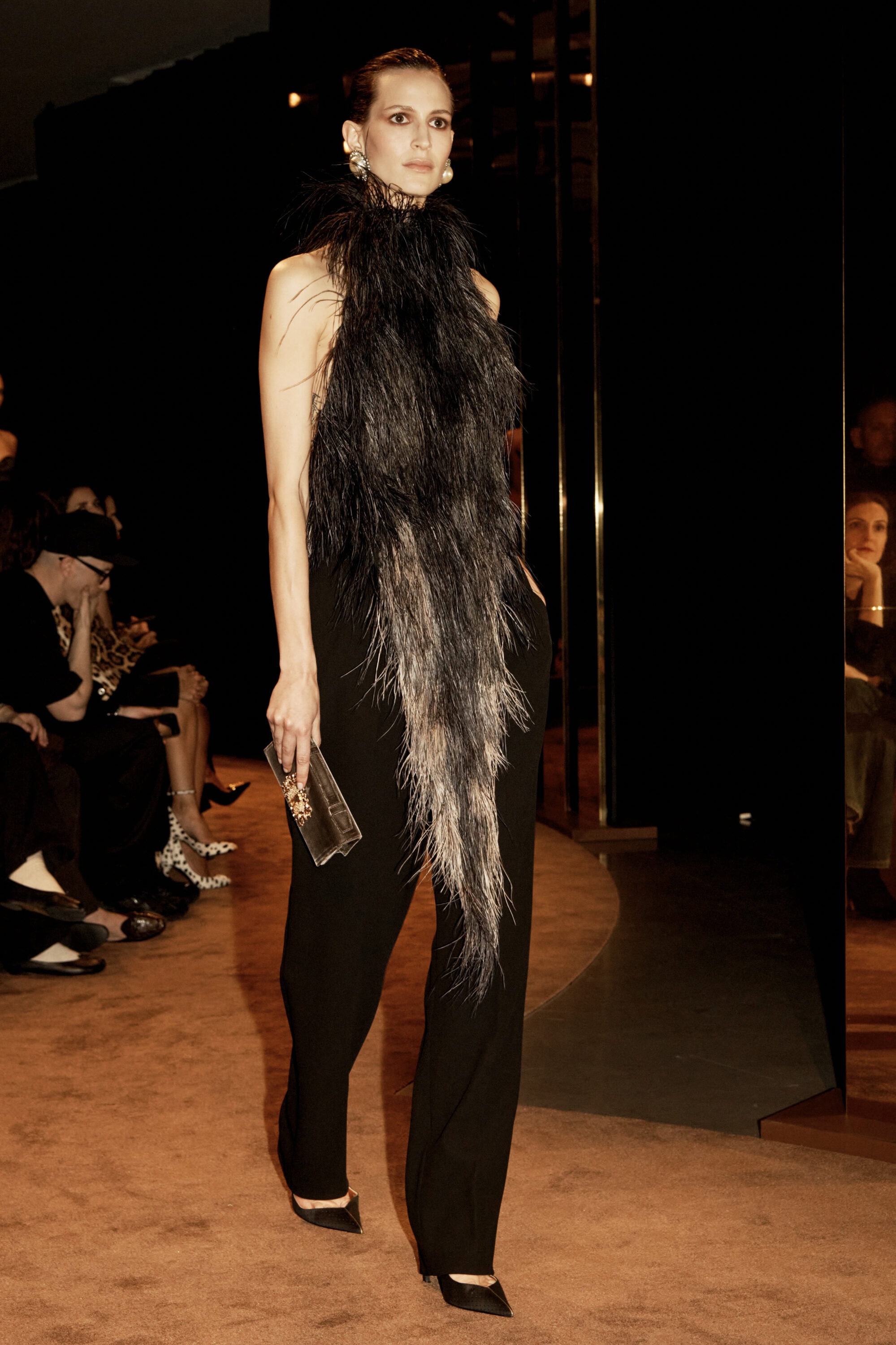A Lone Star Burns Bright
Review of Schiaparelli Fall 2025 Fashion Show
By Mackenzie Richard
THE COLLECTION
THE VIBE
Empowered Ease, Tactile Duality, & Sculptural Western
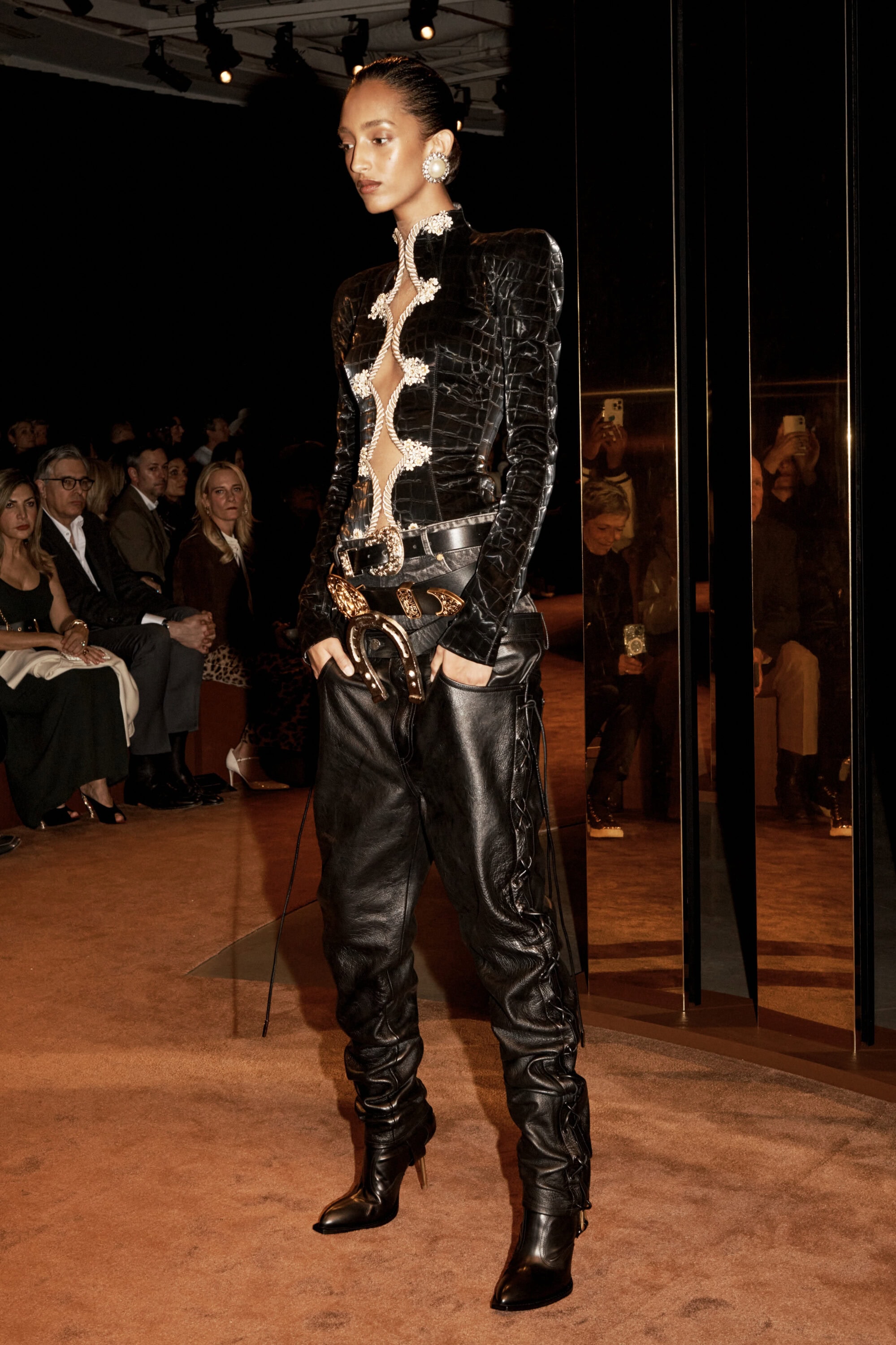
For Fall 2025, Daniel Roseberry turned to the American West—not as a nostalgic exercise in cowboy mythology, but as a deeper meditation on independence, resilience, and the tension between utility and extravagance. Titled Lone Star, the collection was personal, drawing from Roseberry’s Texas upbringing and reinterpreting it through the lens of Schiaparelli’s surrealist codes.
But this was not a Western story about cowboys; it was about women. Women who dress for themselves, who embrace contradiction, and who are as formidable as they are sensual. Duster coats swept the floor with regal command, bow-legged jeans were sculpted rather than stitched, and cowboy boots—symbols of American grit—were transformed into surrealist objets d’art. The collection didn’t just reference the West; it dissected and reassembled it, creating a dialogue between power and femininity, structure and fluidity.
That tension was reinforced through sharp tailoring and unexpected softness, rigid leather forms that moved with surprising ease, and bold accessories that felt like armor rather than adornment. The silhouettes carried weight—both literally and metaphorically. Outerwear was commanding, with strong-shouldered jackets and sculptural belts emphasizing structure and protection, yet there was a deliberate fluidity in the draped suedes and sweeping skirts that softened the collection’s overall stance.
Schiaparelli’s signature surrealism infused every detail, from tooled leather manipulated into couture-level intricacy to trompe l’oeil effects that blurred the lines between weight and lightness. Textural contrast was key, with plush velvets meeting burnished metallics, and high-shine finishes set against the natural matte of suede and flocked fabrics. The exaggerated scale of accessories—an oversized handbag meant to hold a woman’s entire life, sculptural jewelry that felt almost ceremonial—spoke to an understanding of fashion as both personal armor and artistic expression.
Despite the imposing nature of some pieces, nothing felt purely ornamental. The collection wasn’t a costume; it was crafted to be lived in, worn with intent, and imbued with strength. And yet, it wasn’t a rejection of sensuality either—there was a controlled allure to the way fabrics wrapped, concealed, and revealed, reinforcing the idea that power dressing is no longer about mimicking masculinity, but about defining strength on one’s own terms.
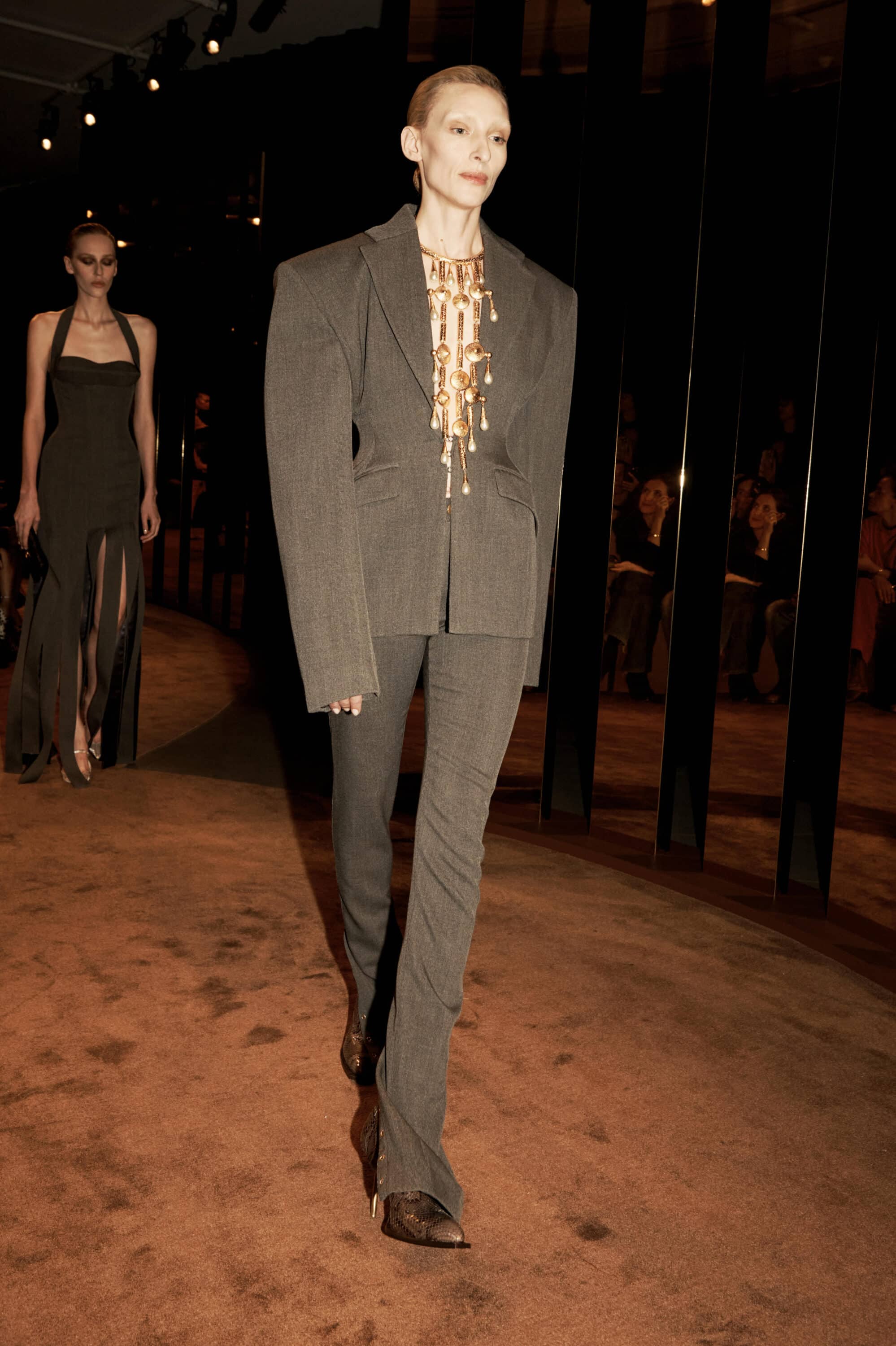
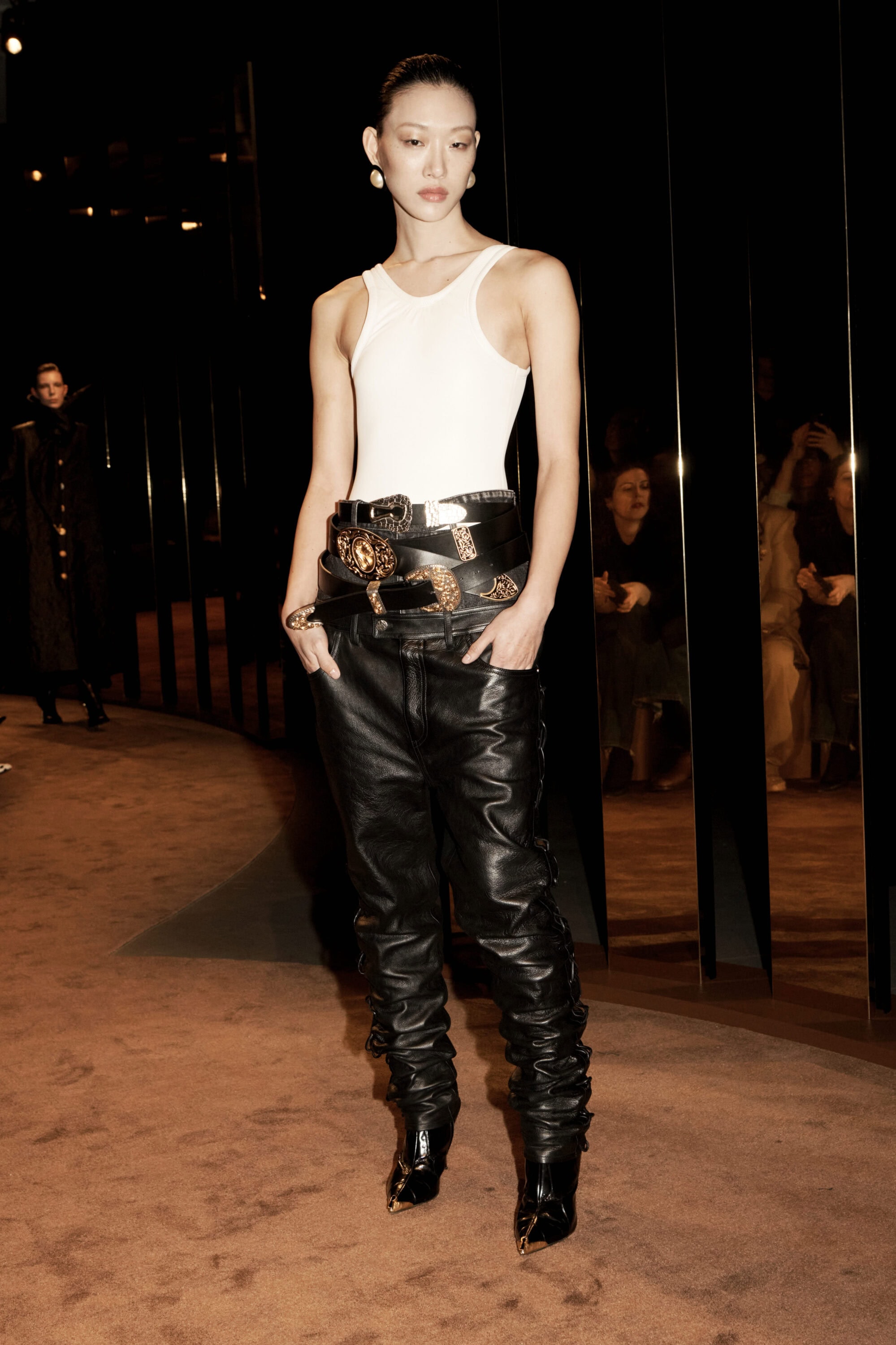
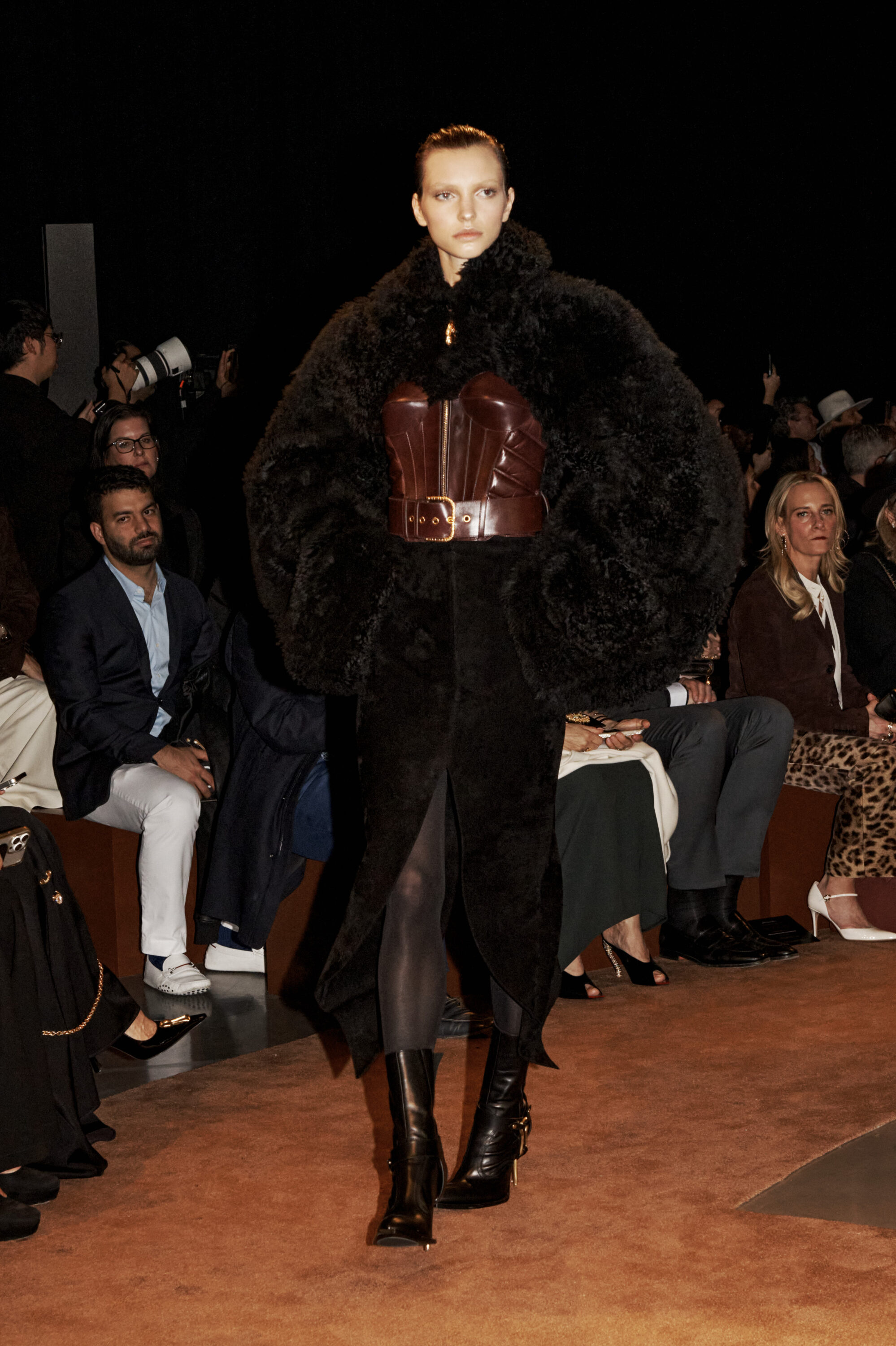
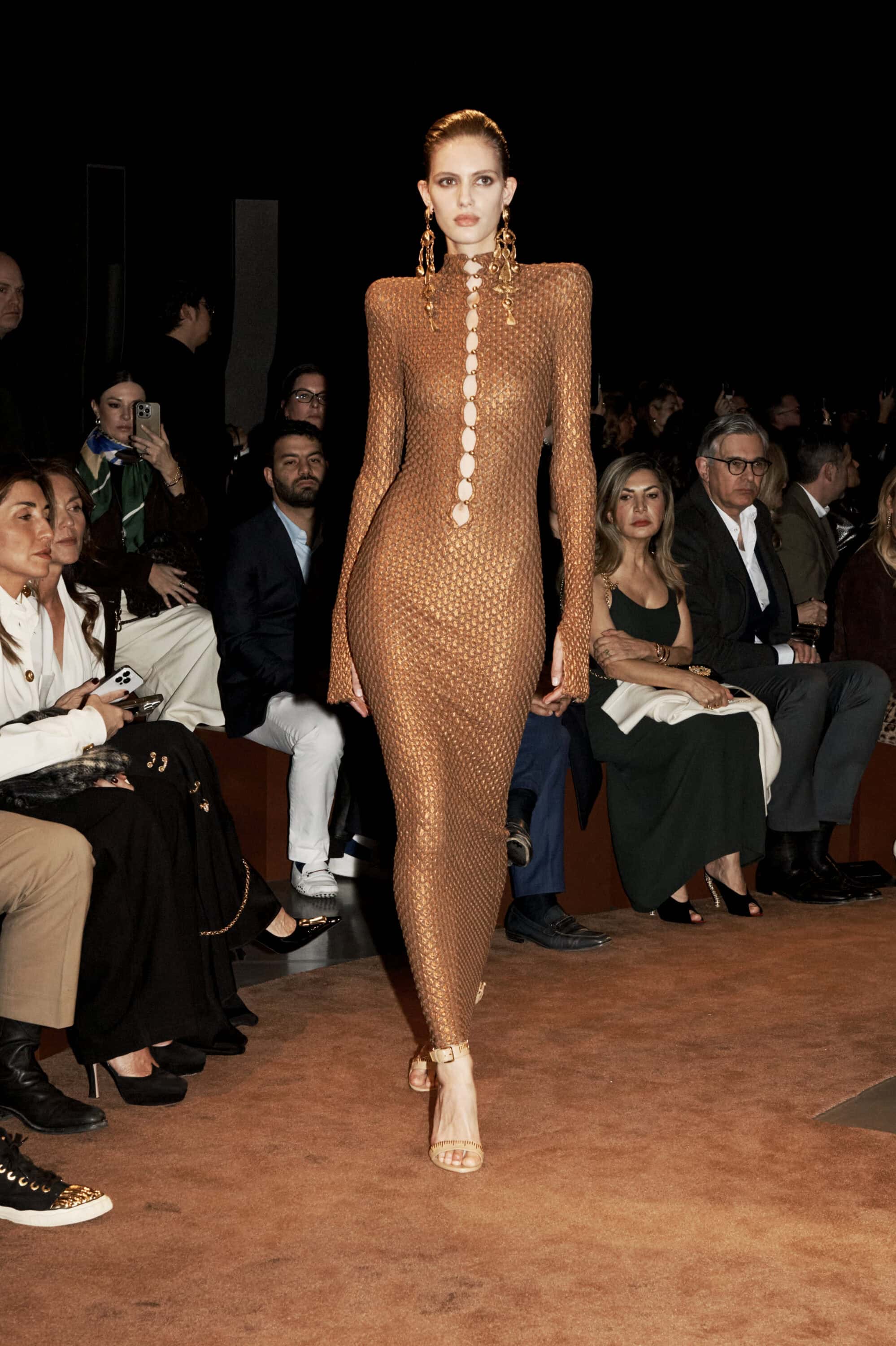
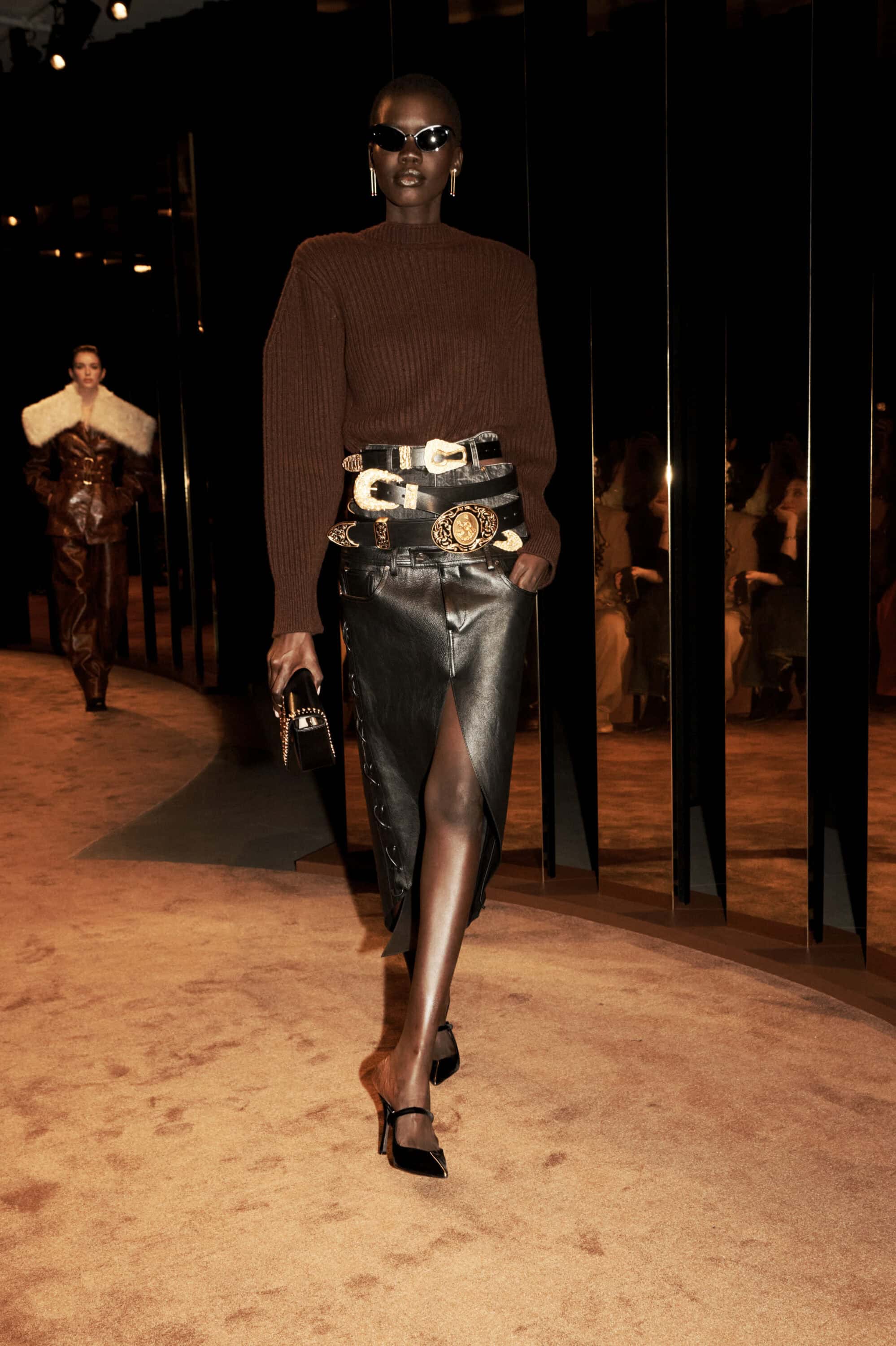
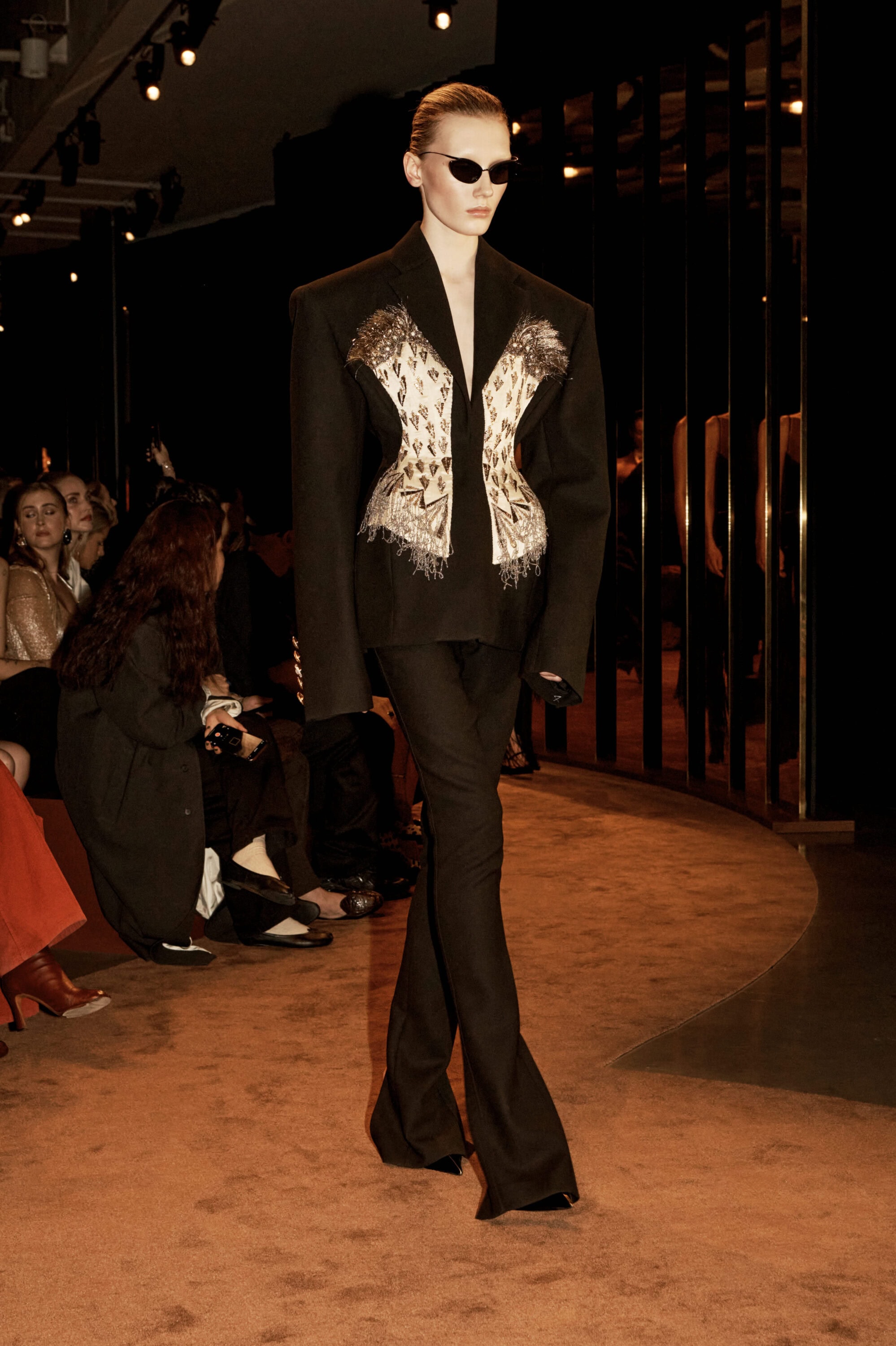
THE DIRECTION
THE QUOTE
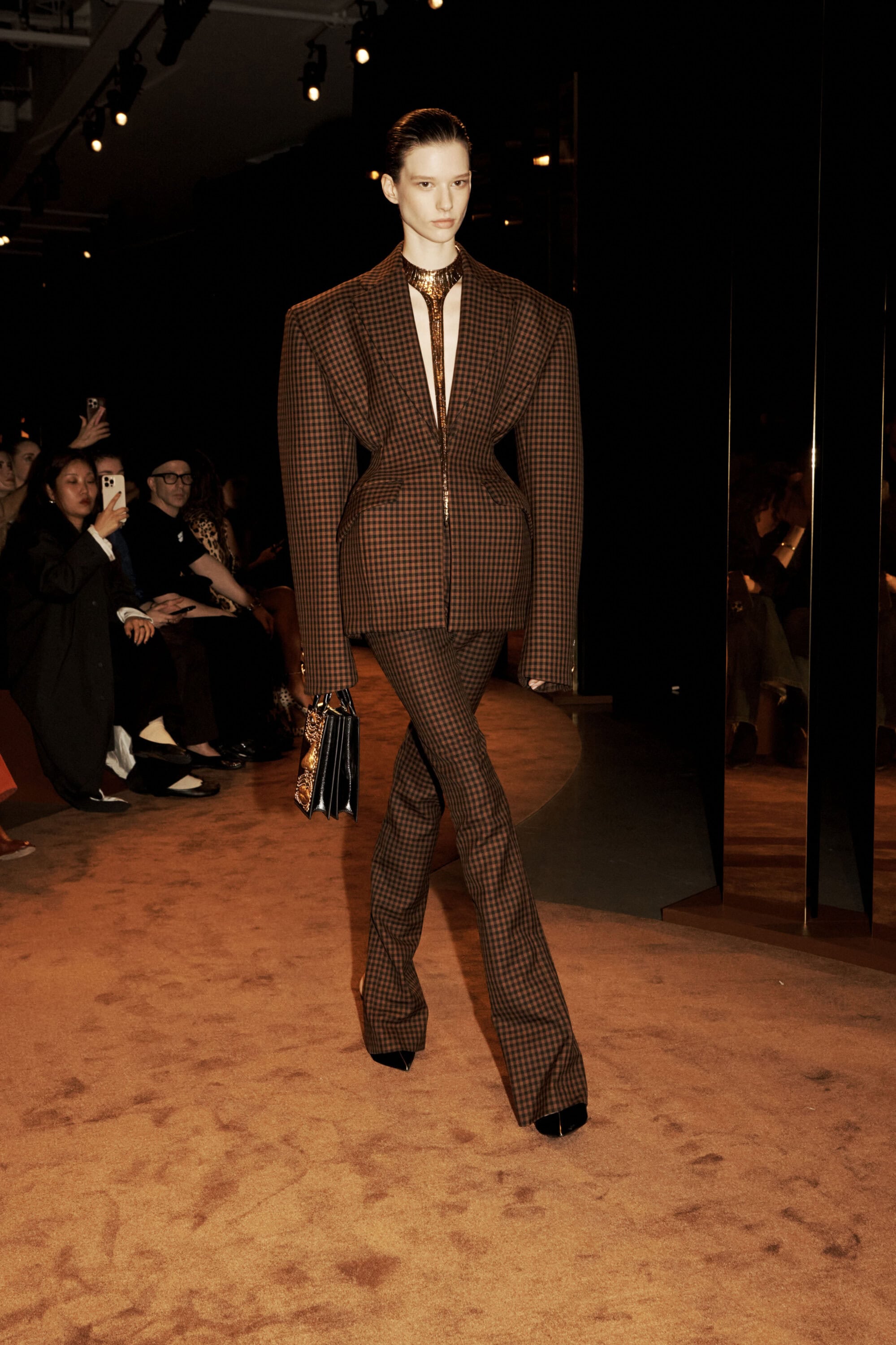
It was about empowering women and doing something for our customers that felt truly meaningful. The couture is my art in a way—this is really a creative act of service. I wanted to create something for them, but also something for myself, a way to find balance between couture’s artistry and ease.
That meant keeping it effortless, integrating daywear while staying true to the house’s craftsmanship. The color palette—honey tones, earthy, natural— reflects that same idea. I wanted it to feel less formal than couture, something instinctive and wearable, yet still deeply considered.
THE WRAP UP
Beneath the grandeur of Lone Star, there was an underlying narrative of self-reliance. The title wasn’t just a reference to Texas but a nod to the idea of the woman as a singular force—untethered, unapologetic, and completely in command. Roseberry’s Schiaparelli has always been about the woman who enters a room and owns it, and this collection reinforced that idea with striking clarity.
Schiaparelli thrives on contrast—past and future, reality and fantasy, restraint and excess. With Lone Star, Roseberry continued that dialogue, proving that the frontier spirit isn’t just an artifact of American mythology but a living force in modern femininity. This was a collection designed not for the male gaze, but for women who recognize power when they see it—and more importantly, when they wear it.
